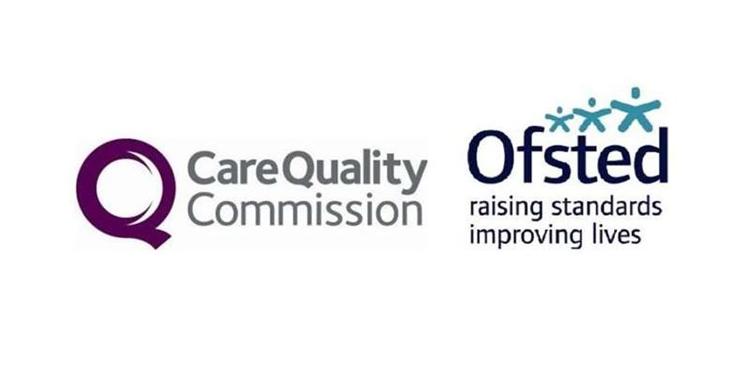Joint area SEND inspection in Haringey finds “significant areas of weakness in the local area’s practice”

Between 5 July 2021 and 9 July 2021, Ofsted and the Care Quality Commission (CQC) conducted a joint inspection of Haringey to judge the effectiveness of the area in implementing the special educational needs and/or disabilities (SEND) reforms as set out in the Children and Families Act 2014.
The inspection was carried out by a team of inspectors, including an Ofsted Inspector and a Children’s Services Inspector from the Care Quality Commission (CQC).
Inspectors spoke with children and young people with SEND, parents and carers, Haringey Council and the NHS. They visited a range of providers and spoke to leaders, staff and governors about how they were implementing the special educational needs reforms.
As a result of the findings of this inspection and in accordance with the Children Act 2004 (Joint Area Reviews) Regulations 2015, Her Majesty’s Chief Inspector (HMCI) has determined that a ‘Written Statement of Action’ is required because of significant areas of weakness in the local area’s practice. HMCI has also determined that Haringey Council and the area’s Clinical Commissioning Group (CCG) are jointly responsible for submitting the written statement to Ofsted.
The main findings of the report are:
- Leaders have made insufficient progress in implementing the 2014 reforms.
- Area leaders have produced a clear, fair and detailed self-evaluation which sets out the area’s priorities in identifying, assessing and meeting the needs of children and young people with SEND.
- Accurate analysis carried out by leaders has highlighted areas of strength, but equally areas where further improvements are needed to embed the SEND agenda across the partnership.
- There is a developing culture of listening and learning, with operational staff telling leaders what they are experiencing on the ground.
- Parents told inspectors that they are concerned about the way that the SEND reforms are being delivered.
- Leaders know their community well. They understand the implications of increased demand and the challenge of meeting an increasingly broad range of needs.
- The quality of education, health, and care (EHC) plans is poor. Education, health and care professionals do not work together well enough to draw up these plans. Weaknesses in assessment and planning processes remain. Amendments made to EHC plans after annual reviews are often inaccurate. Inspectors identified too many errors and shortfalls in EHC plans.
- The CCG and local authority work in collaborative partnership to promote the SEND agenda and to deliver provision which meets the needs of children and young people with SEND and their families.
Haringey has committed to co-producing a ‘Written Statement of Action’ to Ofsted to show how they will address the three areas of significant weakness identified:
- The poor quality of Education, Health and Care Plans (EHCPs).
- Poor communication and co-production with parents, children and young people.
- Unacceptable waiting times for Autistic Spectrum Disorder (ASD) assessments.
We are unsurprised by the inspector’s findings. Healthwatch has worked closely with Haringey patients and service users for some years and this report reflects what so many young people, parents and carers have told us. We note especially the lack of a formal route to facilitate parent participation and co-production, and will discuss with the parents, service users, the NHS and the Council ways in which we may be able to provide support for a new channel to fill this gap.
Since 2017 Healthwatch has supported Haringey’s Joint Partnership Board, with several reference groups for adult social care users, which provide an interface between service users, the NHS and the Council. We have heard for some time of these concerns from our Transitions Reference Group, which looks at issues for young people with complex needs who are transitioning to adult social care, from our Carers Reference Group, and from SCALD, the reference group for those with severe and complex learning difficulties.
The Transitions Reference Group in particular, has regularly highlighted concern over the quality of Education, Health and Care plans (EHCPs), the complexity of the forms, and the lack of clear information and support in understanding the transition process and the waiting times for assessments
Given the inspection findings, we are keen to work with service users and carers, the Council, and the Clinical Commissioning Group (CCG) to improve these services. We will ensure that service users and carers voices are heard, and that they are actively involved in the process to develop and shape the action plan for improvement through our various social care reference groups.
What action are we taking now?
- Transitions Reference Group meeting being arranged to discuss the report, but more importantly – to ensure that this group is part of the Council’s partnership action plan, working closely with parents, carers, and staff to bring about improvements in the areas highlighted in the report. We have invited Mary Jarret, the head of Special Educational Needs and Disabilities (SEND) for Haringey Council, and Tony Parker, the SEND lead for the CCG.
- Feedback requested from Haringey’s Severe and Complex Autism and Learning Disability (SCALD) Reference Group and the Haringey Carers Reference Group, with an invitation to participate in the process for improvement.
- We will write to both the Council and the CCG to suggest new structures to ensure better participation and co-production for parents, patients and service users in the future.
These initial processes will allow us to help shape the action plan within a co-production model where parents and carers are seen as equal partners.


